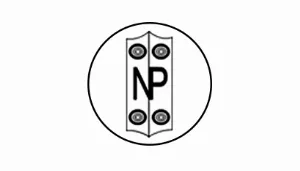Ao Baptist Arogo Mungdang (ABAM) has expressed shock at the state government’s decision to allow sale and consumption of liquor for a fixed period only for foreign delegates attending the G20 business summit at Kohima from April 4-6 under the plea of enhancing tourism based on Section 16 of the Nagaland Liquor Total Prohibition (NLTP) Act.
This Group of Twenty comprises of 19 countries namely Argentina, Australia, Brazil, Canada, China, France, Germany, India, Indonesia, Italy, Japan, Republic of Korea, Mexico, Russia, Saudi Arabia, South Africa, Türkiye, United Kingdom, and United States and the European Union.
In a joint statement, ABAM president Rev. Temshi Longkümer and executive secretary Rev. Dr. Prof., Mar Pongener said that as right thinking citizens, they wonder whether there were no other options of doing development/tourism without abetting the culture of drinking liquor in any manner in Nagaland?
They asked if “drinking liquor the only answer to introduce Tourism in Nagaland?”.
The two ABAM leaders also said it they were “amused and attracted when such events are initiated in the name of development, trade and corporate investments with first world countries.” Further ABAM said it needs to be examined how far Nagas can balance between tourism and liquor drinking culture especially in a Christian dominated state.
While note denying that Tourism was a font of revenue, service production, and regional progress as well as advantage for those interested in foreign exchange and economic development, ABAM, however, said that one can dream of milestone achievements in tourism industry in the light of entrepreneurship development particularly in Northeast solving various emerging problems in the region.
The ABAM leaders also cited various methods for advancing development for indigenous people in North East to envision strengthening the outlook using various attractive slogans such as Incredible India, Look/Act East as a motor for development.
Further ABAM maintained that the north east region is known for its artistic natural features, appealing to tourist domestic and international and for the Directorate of Tourism in their respective states, to identify certain thrust areas based upon the opportunities available in the state for the growth of tourism.
Countering the relaxation of alcohol on the plea of promoting tourism, ABAM pointed out whether “ indigenous Naga Christians” contemplate contemporary issues such as contemplate on the issues such as: when the pattern of development heralded by Tourism is product centered and not life centered; If such initiatives are focused on the quantity of products and not on better quality of life; If it is for the privileged and not for less disadvantaged, then such development remains questionable. Any industry including Tourism that operates by profit mode and commercial standard needs critical assessment.
ABAM then asked “who profits for whom? Who determines the structure and policies of the whole trade? Does the issue of commercialism outweigh the ethical justice and even-handedness particularly the tribal indigenous people who are often sidetracked and marginalized from the pool of fairness? Is it not a crime and violation when there is exploitation and objection of people and resources takes place in the name of Tourism? In the true sense of the word commercially oriented development does not liberate the people to reach the full potential or do justice to the poor and to entire God’s creation. Can we divorce tourism from the culture of liquor and its menaces?
The two maintained that ABAM continues to relentlessly hold on to the firm pathways of the undisputed Christian foreparents of Nagaland who fasted with tears and sacrificed their lives for this noble cause i.e., ‘The Nagaland Liquor Total Prohibition Act, 1989’ (The Nagaland Act No.4 of 1990) assented by the then Governor of Nagaland on April 13, 1990.
Wednesday, July 2, 2025

